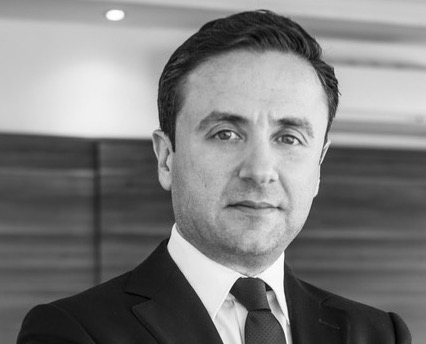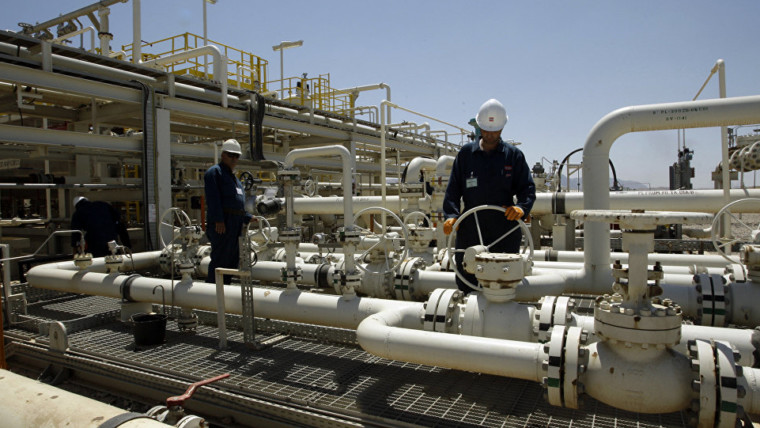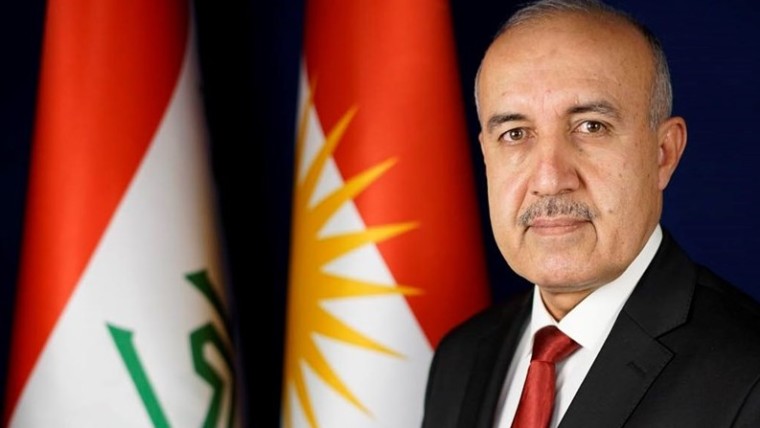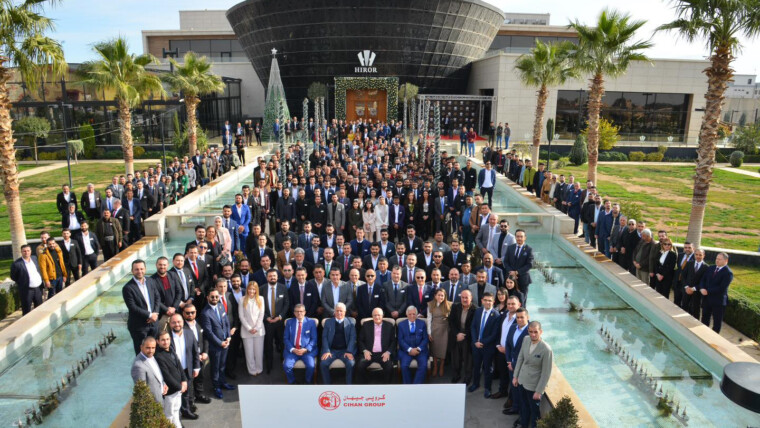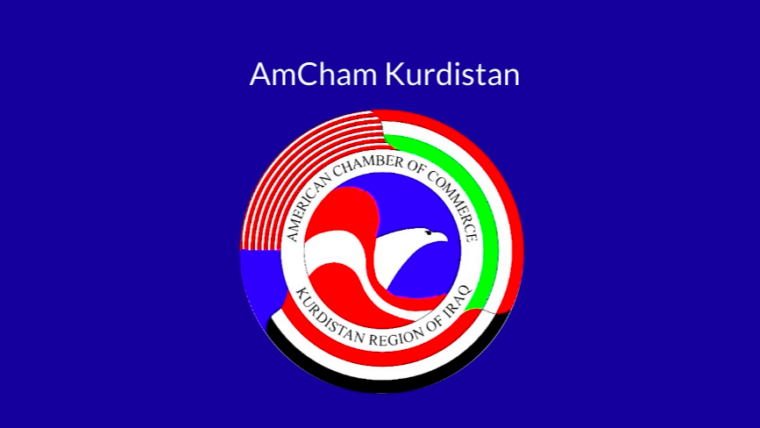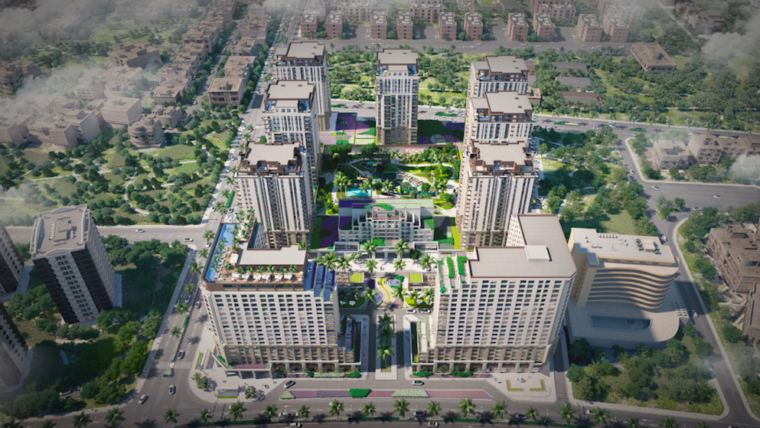Sirwan Sami Abdul Rahman, Chairman of Renwa Group, on the company’s technical and engineering capabilities, Kurdistan’s oil and gas industry, renewable energy potential, and human capital in the energy industry.
How is Renwa currently positioned in the market?
Renwa is an energy services company. Its main area of activity is currently in oilfield services in the Kurdistan Region of Iraq (KRI). Our market position is that we are 100 percent local; however, we work only in sectors that require a high level of technical challenge and proficiency. We are one of very few local oilfield services providers who can work to the standards that international clients demand. We can and do compete with the global services giants on a local level. We are also diversifying into gas infrastructure and renewable energy.
What are Renwa’s technical and engineering capabilities and quality control standards?
We are a local company, but we would not have been able to get where we are today without help from more experienced expatriate personnel from outside. We are a rainbow nation at Renwa. Our team includes people of all sorts of backgrounds and ethnicities, and they have supported our local staff in getting up to speed through mentoring, training and knowledge sharing.
In engineering and mechanical construction, we work strictly to international codes. There are numerous codes and standards determined by the oil industry. We can only work for clients if we can demonstrate a complete knowledge, understanding and adherence to these codes. This affects the quality of everything that we do: they affect safety standards and our ability to provide a warranty to the client.
We are an ISO 9000 registered company, with a genuine international registration. Obviously, we have multiple QAQC systems, depending on which function you are looking at, whether it’s designing and constructing tanks or a pipeline or engineering a facility.
Our market position is that we are 100 percent local; however, we work only in sectors that require a high level of technical challenge and proficiency. We are one of very few local oilfield services providers who can work to the standards that international clients demand.
Sirwan Sami Abdul Rahman, Chairman of Renwa Group
Some oil companies have left the KRI and sold their shares to other companies. Some have stayed but are merging with others. How should we read this in terms of the future of Kurdistan’s energy industry?
Firstly, it’s not unique to Kurdistan: around the world assets are disposed, restructured or merged regularly. At any given time, one of the major IOCs will be buying or selling assets somewhere. So that is a global pattern. Secondly, I think that you are going to see that we are in the midst of a period of consolidation in the KRI. You are beginning to see fewer of the small start-ups / wildcats — they have either been bought, they have disposed of their assets or they have even had their assets taken by the KRG because they did not progress enough compared to other better-resourced players. We are in a period where more and more companies are going from exploration into development and production. Then, once the majority of IOCs are producers, you will start to see some who are more successful on the production side than others taking over assets from those that have explored and developed. This is the natural process of consolidation borne of economies of scale.
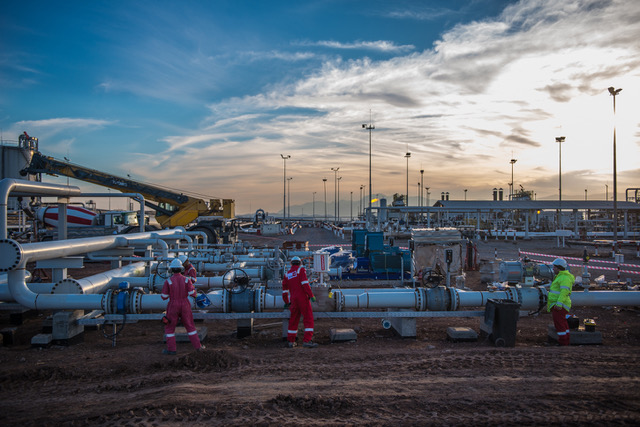
How do you assess the gas potential of the KRI?
Some technical experts say that we are a gas field with oil pockets, which is an interesting viewpoint that has merit. Our gas fields are clearly potentially very substantial. However, the upside of oil compared to gas is that oil is a fungible product. Before it has even reached the surface, you have a market for it. It is easily stored and can be moved by truck or pipe. With gas it is more complex, but it is a cleaner energy, it’s used more easily in power generation or large-scale utilities. Kurdistan will need to have large-scale gas infrastructure in place to truly exploit gas assets.
The gap at the moment is in building the gas infrastructure, which is an enormous responsibility for the KRG. The IOCs will be obliged to build gas infrastructure in their respective fields/blocks; however, the greater burden will fall on the KRG as much of the gas infrastructure that needs to be built will fall outside the IOCs’ remit. It represents a substantial obligation, but also an exciting opportunity. We at Renwa very much want to be involved in that. So, seeking to diversify from being solely an oilfield services company to being a gas infrastructure company, we are in negotiations with international investors and partners in order to be able to present a plan to the relevant authorities here to support building gas infrastructure. It could certainly be a game-changer for Kurdistan in terms of economy, employment and trade. It will take many decades to build a full, robust gas infrastructure that will create opportunities for many citizens.
So, seeking to diversify from being solely an oilfield services company to being a gas infrastructure company, we are in negotiations with international investors and partners in order to be able to present a plan to the relevant authorities here to support building gas infrastructure.
Sirwan Sami Abdul Rahman, Chairman of Renwa Group
How do you assess the KRI’s renewable energy potential? Do you think that in the near future we are going to see some new companies that will invest in renewable energy in the KRI?
I have been following and tracking renewable energy for decades. I find it personally very interesting. Every time I have thought that it remains out of reach, is too expensive in comparison to hydrocarbons, I am surprised by how quickly the price drops. The unit cost of solar is dropping at an exponential rate. It is startling and very encouraging. Every year they are able to shave more and more off the cost of producing units of energy. In the last five years, the renewables industry has lowered costs by a huge factor. This has reached the point where some Western developed countries are removing subsidies for having solar panels on your roof, because they almost match what hydrocarbon power generates.
I have full faith that renewables will continue, with the advance of technology, to come down in price. I also have full faith in the renewables industry’s place in Kurdistan because I find people sometimes belittle it here. Often, they feel that our citizenry does not understand the benefits of renewables. I reject that completely; I do know many people who are exhausted by the sound of domestic generators next to their homes and who want to preserve the beauty of the landscape of Kurdistan and are mindful of environmental damage. I believe that the citizens of Kurdistan do want it to happen and public demand will be the driver. That creates public will, and this should lead to political will. Not every solution requires government funding. There is a whole world of regulation, external funding and political drive towards renewables. So the KRG can provide support in non-financial ways by setting up a pro-renewables regulatory environment, by easing the path for land acquisition, by providing tax breaks and incentives, for example. No developed Western government is fully funding solar farms; they leave it to the private sector. However, they create the regulatory environment to make it favourable to do so.
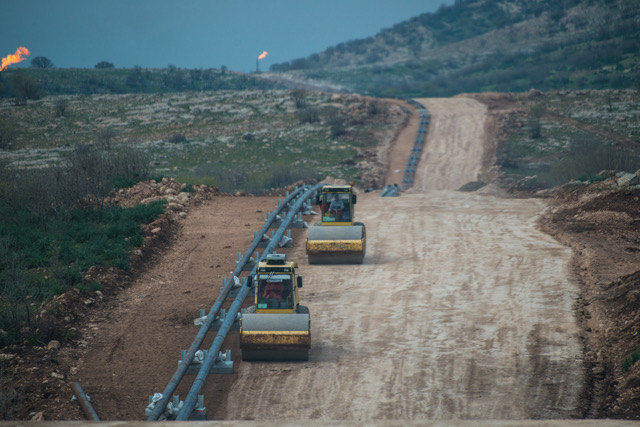
We need to create a lobby that presents the case, that explains that for Renwa to match dollar for dollar or come close to parity with hydrocarbons, what conditions would need to be in place. And there is plenty of outside help. I don’t think international funding bodies are going to come and fund oil and gas activities in Kurdistan — I am talking about IMF, World Bank — these people, if you explain what you want to do in renewables, may be able to help in some way. There are different ways to approach it. Not every solution requires the KRG to put its hands in its pockets.
So, you are saying, Kurdistan needs a legal & regulatory environment that mandates a certain percentage of energy from renewable sources.
Various MPs here in Kurdistan have discussed drafting laws that would be beneficial to creating a more mixed energy balance. It begins with a legislative process of course. Investors will not take steps without a clear understanding of the sector’s regulatory and legal framework. If the Parliament cannot lead on this, then the KRG can take the lead and Parliament will follow, but I see no reason why we cannot take bold positive steps into renewables.
How do you assess the KRI’s human capital in the energy industry?
Renwa is now in its tenth year of operation, and I can say the situation is better than it was but there still remains a long way to go. Many of our graduates who have studied anything related to what we do, whether it’s petroleum engineering or mechanical engineering, have been given an old theoretical curriculum to follow that bears insufficient relation to the modern working world, standards or practices. That needs to improve. We are also finding that graduates may have an education, they have got decent grades in various functions in engineering, for example, but they are not work-ready. They haven’t been trained in what it is to work collaboratively, to understand processes. That needs to be addressed. I think that there should be oil and gas training academies throughout Kurdistan. The industry should be deeply involved in coming up with the curriculum and in driving the right sort of standards and educators to these institutes.
I think that there should be oil and gas training academies throughout Kurdistan. The industry should be deeply involved in coming up with the curriculum and in driving the right sort of standards and educators to these institutes.
Sirwan Sami Abdul Rahman, Chairman of Renwa Group
How important is it for Renwa to invest in employing more of a local workforce?
Wherever possible, we will replace an expatriate employee with a local one, and when that’s not possible we will have an expatriate employee shadowed by a local, so in time what we would like is for more and more of our senior positions to be occupied by locals. However, one of the problems we have is that many of the certifying bodies — suppose you want to be a Quality Control engineer in oil and gas — require you to pass various short exams to obtain certification. There is nowhere here for a Kurd to pass that exam — there is no institute, there is nowhere to study that properly. This is one of the issues we have had, and it is something for the energy industry here to address.
I think we should be careful not to alienate the wonderful foreign staff who work in Kurdistan for the whole industry. They have mentored many of us, they have raised the standards and shown us the way. I think whatever localisation level we reach, we should always ensure that there is a good balance of external expertise contributing to whatever we have.
What trends do you see in youth employment in the KRI?
I am beginning to see the emergence of a youth sector which, given the opportunity, would prefer to work in the private sector and not in the public sector. There has been for years now, but especially with this new government, a big effort to push people away from a reliance on the public sector. What we’re now beginning to see, but it needs to grow exponentially, is a tendency of young men and women with no interest in just being on the government payroll. They feel they want to be architects, or chefs, or own their own stores, or be engineers, or run a company. Of course, we need a large number of our brightest to work for the government. That said, the biggest solution to the government’s problems would be to enable and empower the private sector. We need to create conditions where not only do people want to be in the private sector, but they understand the responsibility they hold and what’s expected of them. We have employed people who haven’t necessarily had the best education, and we educate them through work and motivate them through quick progress. Now they are exceptional permanent employees.
When you come to Kurdistan, you are totally surprised by what you find — you find a modern, accepting society that is comfortable in its own skin. My motto has always been: “The single best way to market Kurdistan is to bring people to see it for themselves.” Nobody is unimpressed. People genuinely enjoy being here. People choose to live here. We have employed foreigners on a short-term basis, and they have decided to stay for years.
Sirwan Sami Abdul Rahman, Chairman of Renwa Group
How do you think that regional political problems are affecting Kurdistan’s business landscape?
Everyone is affected by the events in the region. One thing you will find is that Kurds of Iraq crave peace and stability, and they will do everything possible to maintain it. When you come to Kurdistan, you are totally surprised by what you find — you find a modern, accepting society that is comfortable in its own skin. My motto has always been: “The single best way to market Kurdistan is to bring people to see it for themselves.” Nobody is unimpressed. People genuinely enjoy being here. People choose to live here. We have employed foreigners on a short-term basis, and they have decided to stay for years. The single best way you could promote Kurdistan is through continuing to diversify. Diversification will give us strength, with no over-dependence on a single sector and reliance on people’s will and desire to maintain peace and progress.
As a Kurdish person who lived many years elsewhere, how would you define the Kurdish culture and the local people here?
We are a genuinely welcoming and tolerant people. We are a predominantly traditional people, but are completely accepting of other people who live different lives, and allow others to be who they are. We Kurdistanis are a rainbow nation. We have Christians, Arabs, Syrians, Yazidis, Kakais and so many more. This is the way to sustain peace and acceptance and tolerance. We have had 1.3 million refugees and IDPs enter Kurdistan. You will almost never hear about resentment from the public about it; it’s part of our culture. Everyone here has a story of loss or tragedy. Here, people are forward-looking, peaceful, and desire progress.
We are a genuinely welcoming and tolerant people. We are a predominantly traditional people, but are completely accepting of other people who live different lives, and allow others to be who they are. We Kurdistanis are a rainbow nation.
Sirwan Sami Abdul Rahman, Chairman of Renwa Group
Considering Kurdistan’s development since 2007, could you ever have dreamed this?
Now, yes, but if you had asked me in 2004, I would have struggled to believe that this is where we would be now. I’ve become accustomed now to progress. I must say, when I first moved back in 2004, I saw many shortcomings like the standard of buildings, or the quality of IT or Internet infrastructure, and I thought, this will never happen, they don’t see the need. Then at each stage I have seen someone get up and fulfil that need. We are an entrepreneurial people. People see gaps, and they see an opportunity to fill that gap and make a good living, and that is very commendable.

